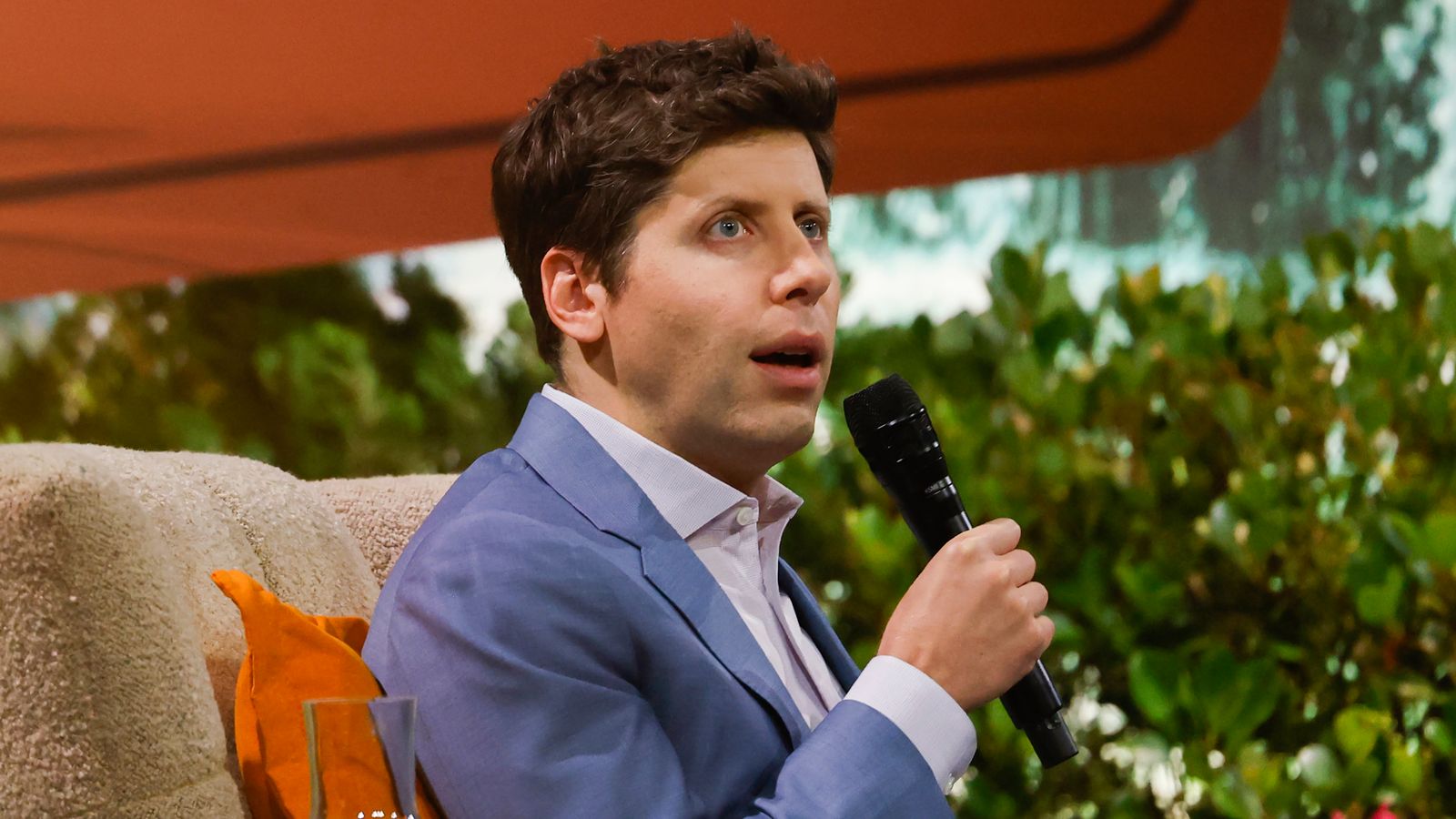OpenAI, the artificial intelligence startup backed by billions in funding from Microsoft and others, is facing a major leadership crisis. Its board abruptly fired CEO and co-founder Sam Altman last week, leading to an executive exodus. Now, investors are pushing to reinstate Altman amid growing fears over OpenAI’s future direction and stability.
The Visionary Leader Who Built OpenAI
Sam Altman, at just 38 years old, was the visionary force behind OpenAI’s meteoric rise to prominence. He co-founded OpenAI in 2015 together with Greg Brockman and Ilya Sutskever, with the lofty goal of developing advanced artificial general intelligence (AGI) that could rival human abilities.
As CEO starting in 2019, Altman pushed the boundaries of what AI systems could do. He made the key strategic decisions to develop and release technologies like ChatGPT-3, company’s powerful natural language model that can generate remarkably human-like text responses.
Under Altman’s leadership, the startup achieved a series of technical breakthroughs that captured the public’s imagination regarding the potential of AI. At the same time, Altman preached responsible development of AI to avoid risks.
Altman was unusually open about engaging with the public and government to educate on AI capabilities and advocate for regulation of the technology. He extensively testified before Congress on AI, met with over 100 members, and conducted high-profile demo’s of OpenAI’s systems for lawmakers and officials.
Within the tech industry, Altman came to be viewed as a pioneer ushering in a new era of AI – as well as something of a maverick willing to move fast and break things in typical Silicon Valley fashion. While preaching ethics, he pushed rapid development of AI technologies and laid plans to commercialize OpenAI’s systems and make them available to the public through developer APIs.
The Board’s Abrupt Move

The decision to oust Altman reportedly stemmed from growing disagreements between Altman and OpenAI’s Chief Scientist Ilya Sutskever. While Altman pushed to rapidly innovation and commercialize AI systems, Sutskever and others on the board aimed for a slower, more cautious approach to developing and releasing AI technologies.
In Silicon Valley’s “move fast and break things” ethos, Altman represented the fast-moving innovator, while Sutskever epitomized the more careful, academic approach.
Altman was reportedly fired directly by Sutskever himself during a Google Meet call, without any notice or transition plan.
Right afterwards, its President Greg Brockman, who co-founded the company with Altman, immediately resigned in protest, saying in a public post “Based on today’s news, I quit.”
The board moved swiftly to appoint Chief Technology Officer Mira Murati as Interim CEO. But the opaque process in which Altman was ousted enraged company’s high-profile backers.
Investor Revolt Puts Pressure on the Board
OpenAI’s biggest investors, including Microsoft, Thrive Capital, and Tiger Global, are now pushing the board to reinstate Altman as CEO.
 Microsoft CEO Satya Nadella reportedly personally reached out to Altman over the weekend to offer support after the firing. As the AI company’s largest investor, having put over $10 billion into the company, Microsoft was blindsided and not consulted about the CEO change.
Microsoft CEO Satya Nadella reportedly personally reached out to Altman over the weekend to offer support after the firing. As the AI company’s largest investor, having put over $10 billion into the company, Microsoft was blindsided and not consulted about the CEO change.
Other major investors like Vinod Khosla have publicly stated they want Altman back in charge but will continue supporting him regardless.
Facing mounting pressure from key investors, company has already expressed public optimism about potentially bringing back Altman and other executives who left.
But the way Altman was abruptly axed by unilateral board action has created distrust between company’s backers and its board. Major decisions with massive implications were taken without investor input.
OpenAI at a Crossroads: What Happens Next?
OpenAI now stands at a crucial crossroads, and its future leadership and direction remains uncertain.
If Altman returns as CEO, it would be a huge victory for him and his supporters. But he would likely have to agree to give up some of his prior unilateral control and move at a pace more acceptable to the board.
 There are already reports of negotiations underway about potentially letting Microsoft join the board in return for Altman’s reinstatement. OpenAI will likely need make governance changes to restore investor confidence.
There are already reports of negotiations underway about potentially letting Microsoft join the board in return for Altman’s reinstatement. OpenAI will likely need make governance changes to restore investor confidence.
If Altman does not return, the board clearly intends to take OpenAI down a more careful, limited path under new leadership. But this risks OpenAI losing its energy as an innovative pioneer of AI systems.
And if Altman starts his own AI company, as some have speculated, it could siphon away key talent and create a formidable competitor to OpenAI overnight.
No matter what happens next, OpenAI may never be the same. But one thing is clear – Altman’s bold and visionary leadership made OpenAI what it is today. While the board may have ousted him, his outsized impact on AI technology and on OpenAI itself will endure long into the future.












Comments 2